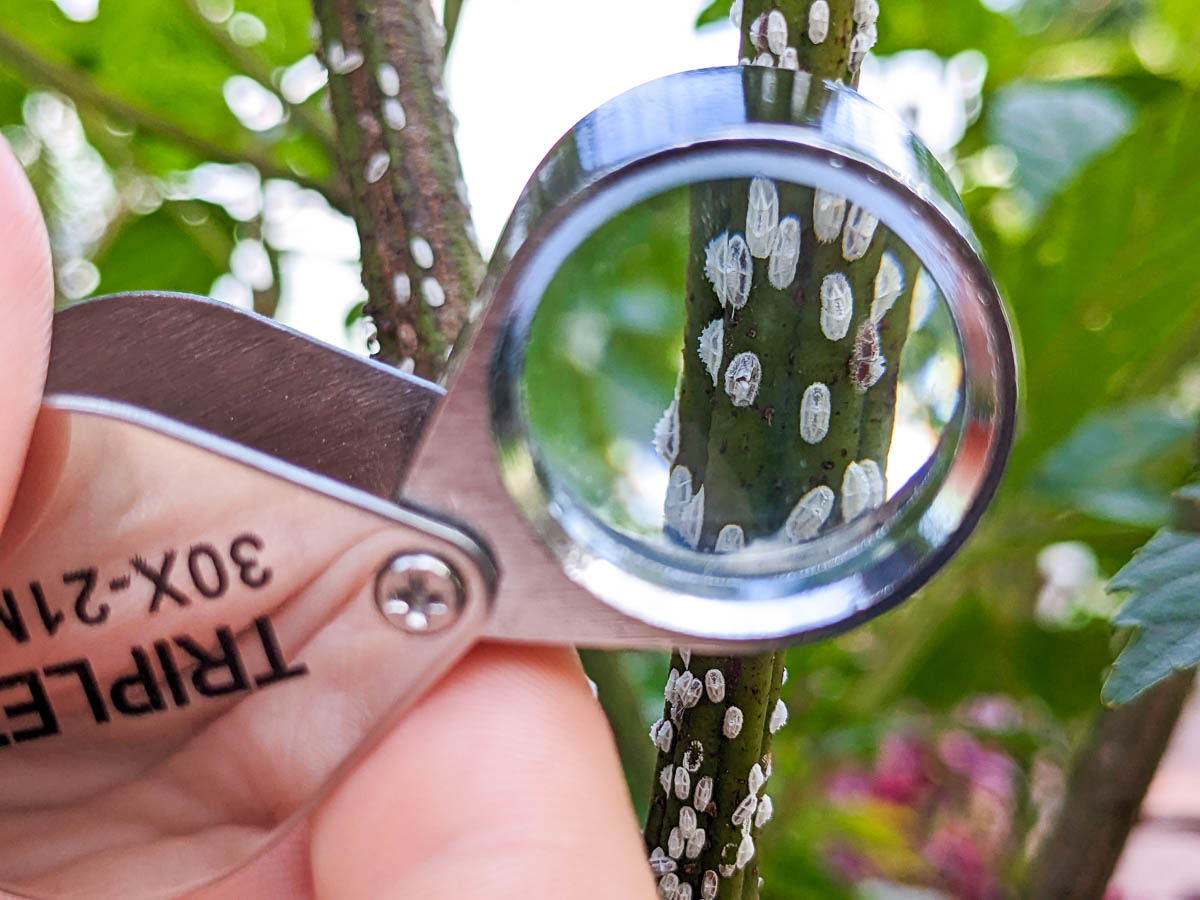Scale Insects
Scale Insects (Sternorrhyncha)

Scale insects are small, soft-bodied, sap-sucking pests that consume sap or plant cell contents. They cover themselves with layers of wax that looks like scales, and can appear as brown, grey, or white. This waxy cover helps them to camouflage and prevent them from drying out, and also protect them from most contact insecticides.
Large populations of scale insects can cause damage to the plant, causing their leaves to yellow, stunting their growth and causing die back.
_jacquelinechua.jpg)
Soft scale insects have a flexible and soft waxy covering and will move between plants depending on the time of the year and the stage of their life cycle. Like Aphids and Mealy Bugs, they also excrete honeydew, which is a sweet substance that attracts ants and causes the growth of sooty mold.
victorialim.jpg)
Hard scale insects have a hard and inflexible waxy shell, and tend to remain in one place after settling down. The do not produce honeydew.
As with all pests, Scale Insects generally attack plants that are already unhealthy. Check your plant for additional problems such as root rot from waterlogging, etoilation, or overcrowding. Cultural control methods should be implemented to prevent your plants from becoming unhealthy in the first place.
Symptoms

They are often seen as brown or white, round or oval scales covering stems or veins of plants. Plants can also show sign of yellowing of leaves, stunted growth or overall decline in plant health.
A soft scale insect infestation is associated with the presence of sooty mould and ants.
Preventive and control measures:
Always isolate and inspect newly bought plants for pests before introducing them to your plant collection. Isolate affected plants immediately if pests are found.
Healthy plants are generally resilient to infestations. If you have a severe pest infestation, check your plants regularly for additional underlying problems such as root rot from waterlogging, etoilation, or overcrowding.
If affected plant part is small, you may try to remove the protective layer of the scale insects with a strong spray of water and by scrubbing with a soft brush. This removes their protective waxy layer and exposes them to make them vulnerable to predators, drying out, and insecticides.
Chrysanthemum spray, horticultural oils and sulphur soap sprays can kill soft-bodied pests on contact, and hard Scale Insects after their protective layer has been scrubbed off. Use chemical controls like these sparingly as they tend to also affect other types of biodiversity.
Encourage predators to establish in your garden by keeping it pesticide-free. Ladybirds feed on soft Scale Insects and can keep their population under control.
Heavily infested plant parts should be pruned as soon as possible. Severe infestations may need the entire plant to be removed. Bag up the infested plant or plant parts securely for proper disposal to prevent further spread. Do not use the removed plant waste for composting or for consumption.

